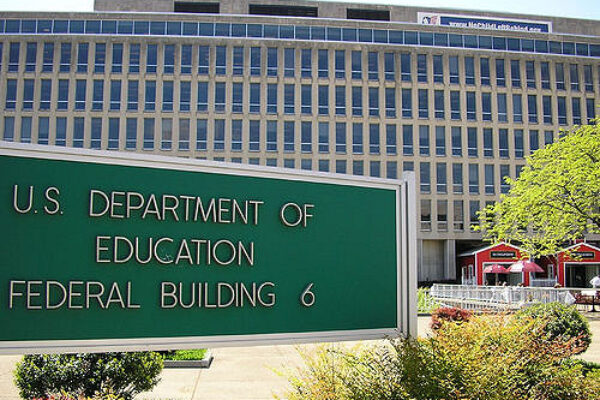The next four years at the U.S. Department of Education are vitally important for the education of our nation. Miguel Cardona will probably be confirmed by the Senate and succeed Betsy DeVos as the next U.S. secretary of education, but whoever takes on the role will have a steep learning curve and a lot of work given the shortcomings of the previous administration.
DeVos-era policies were devastating and included efforts to shift money away from public schools serving low-income students, delay measures to address racial disproportionality in special education and discipline, and eliminate key student loan protections.
Cardona’s tenure at the Education Department will be consequential given the current state of public education, public health and the economy. Although he is a former public school teacher, principal and Connecticut commissioner of education, he lacks higher education experience and has limited time working as a leader within state government. Thus, he will need to immediately hire a support staff with higher education and political experience and draw upon his administrative skills to manage the department’s 4,400 employees and $68 billion budget.
His first order of business should be to immediately support K-12 schools and institutions of higher education managing the impact of the COVID-19 pandemic. This means focusing on the millions of children across the U.S. who lack adequate access to broadband internet and devices that are absolutely critical to learning during a global pandemic.
The Trump administration never effectively organized school reopening plans across states or sufficiently addressed the “digital divide” between the haves and the have nots. Cardona may want to take a look at how Title I money earmarked to support low-income students could be better utilized.
Researchers have found that some federal education dollars for low-income students have flowed to larger, wealthier districts rather than smaller districts serving higher proportions of low-income students. Situations like this need to be examined and rectified.
Cardona will also need to respond to staffing shortages. The pandemic appears to be increasing rates of teacher and principal turnover across the country, which will further disrupt schools. To reduce stress placed on teachers and use time and resources efficiently, some states have requested waivers from the U.S. Department of Education to stop high-stakes accountability for the school year. In Connecticut, Cardona sought to resume annual testing despite the pandemic. He will need to rethink high-stakes testing across the country because it typically requires all students and teachers to be physically present in class. It is also costly.
As states look to cut budgets, Cardona should expect to see a rise in the cost of higher education and a potential surge in predatory, for-profit colleges seeking to take advantage of the system.
Rising costs will create a difficult challenge for Cardona, as Biden campaigned on making community college free and covering the cost of four-year universities for families making less than $125,000 per year. The majority of the department’s budget is actually dedicated to federal student aid. In a time of reduced budgets, Cardona must expand and improve the Public Service Loan Forgiveness and Teacher Loan Forgiveness programs. The programs have had implementation problems, which has meant many eligible borrows have not had their debts erased.
The next four years will play a pivotal role in reshaping public education. The action that this administration takes must undo troubling policies and address immediate needs related to the pandemic, which will require significant political maneuvering in a divided country.
The pandemic will eventually come to an end, and our schools and institutions of higher education will continue to need appropriate oversight and support to meet the many goals of our complex education system. Although his public school experience may not provide him with the experience to navigate D.C. politics, hopefully it will keep him grounded and focused on students when things get tough.
David DeMatthews is an associate professor in the Department of Educational Leadership and Policy at The University of Texas at Austin.
A version of this op-ed appeared in the San Antonio Express News and the Austin American-Statesman.




